The Legacy of Metal Gear Solid
A look back at a decade of Kojima's iconic franchise
When most action games focused on shooting your way through any situation one game appeared on the scene in 1987 that broke the mold. Hideo Kojima's Metal Gear debuted on the MSX computer, later adapted for the NES, and was subtle and deep when compared to its contemporaries. Players took on the role of the secret agent Solid Snake and were expected to use stealth and subterfuge to make their way through a mission with a densely layered plot, including military action and terrorist conspiracies.
The success of the title spawned a number of sequels but most notably with the PlayStation generation came the Metal Gear Solid franchise.
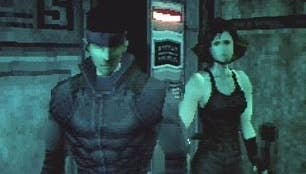
Metal Gear Solid burst onto the PlayStation in 1998 and, billed as a tactical espionage action game, it saw Metal Gear's protagonist Solid Snake make a welcome return.
The game, much like the original Metal Gear, stood out from its contemporaries in terms of quality, depth and ingenuity.
The title featured an extensive promotional campaign with television and magazine advertisements and demos. In total, promotional costs totalled USD 8 million, with an estimated 12 million demos distributed. Metal Gear Solid was a commercial and critical success, shipping over 6 million copies worldwide and earning high praise - the title holds a Metacritic rating of 94/100.
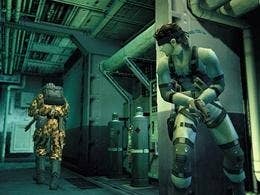
Metal Gear Solid 2: Sons of Liberty was released on the PlayStation 2 in Japan and North America in 2001 and later, in 2002, it was released to Europe.
The title saw the story take on a more dominant role, with lengthy cut scenes being both praised for their high cinematic quality and complex plots and reviled for being too serious and jarring with the gameplay. Further criticism was caused when gamers were forced to play the role of new character, Raiden, for much of the game.
Despite the somewhat polarizing characteristics of MGS2, the game was swept up in a tide of positive reviews. Eurogamer's own Tom Bramwell awarded the game 9/10, saying "MGS2 is an experience unrivalled in terms of scope: Buy it. There won't be another one of its calibre for several years."
Consumers and critics agreed, the title sold over 7 million copies and has a Metacritic rating of 96/100.
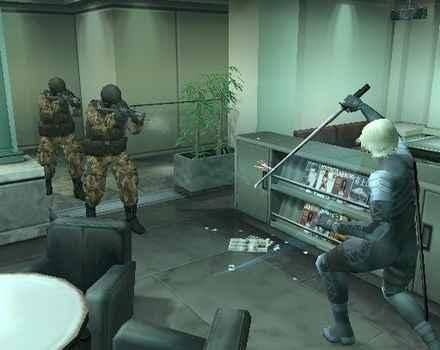
Metal Gear Solid 2: Substance, an updated version of the original MGS2, was released over 2002 and 2003 across multiple platforms, including the PlayStation 2, Xbox and PC.
The main addition brought into MGS2: Substance was the inclusion of extra missions, with 300 VR Training missions and 200 alternative missions set in areas taken from the main game. The title has a Metacritic rating of 87/100.
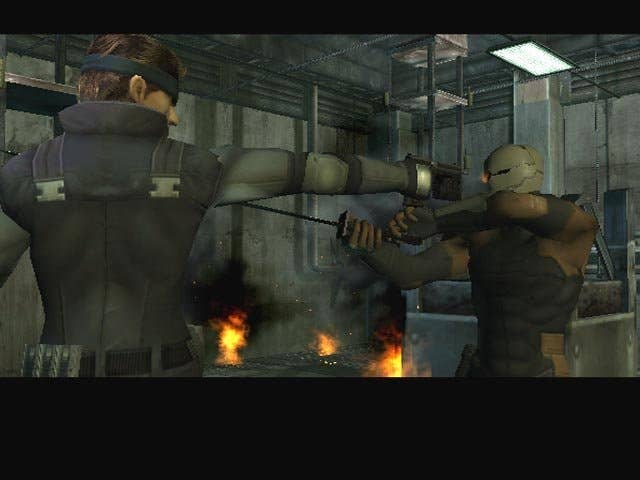
Metal Gear Solid: The Twin Snakes was released in early 2004. Developed by Silicon Knights for the Nintendo GameCube, MGS: The Twin Snakes was a remake of the original Metal Gear Solid, with updated graphics, new cut scenes and gameplay mechanics from MGS2.
The game was well received, although not as cherished by consumers or critics as the original was, and has a Metacritic rating of 85/100.
Eurogamer's Tom Bramwell gave it 8/10, and said "For those of you who cherished the original game? This is the best pair of rose-tinted spectacles money can buy, and a good alternative to the anti-climax of seeing how a once-cherished favourite has aged - The Twin Snakes is akin to watching an old movie and seeing it the way your mind's eye remembers it, complete with technical improvements you couldn't even imagine at the time. It's an experience that we don't often get to appreciate as gamers or otherwise."
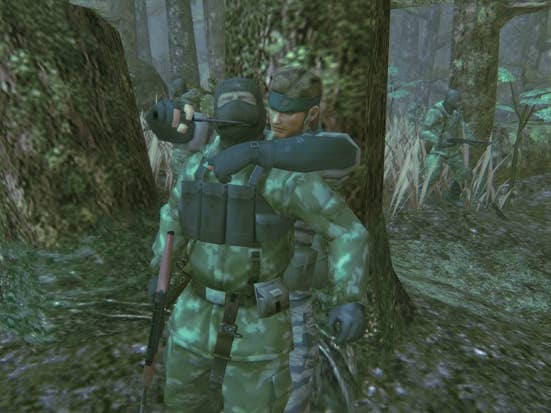
Metal Gear Solid 3: Snake Eater in 2004, took the series in a different direction, taking place in a setting before the original Metal Gear title and with the protagonist being Naked Snake, a character who later become the series infamous villain Big Boss.
Naked Snake was similar enough to the series original protagonist, Solid Snake, that gamers and critics adopted him with far greater ease than they did Raiden in MGS2. The plot was also more streamlined than its predecessor, which, when combined with the inclusion of a fan-favoured protagonist led to widespread praise and over 3.9 million units sold.
Eurogamer's Tom Bramwell awarded the game 8/10 and acknowledged the improvements on MGS2 in his review, saying "the crucial difference between the storytelling of Metal Gear Solids 2 and 3 is that in the jungle you always genuinely think you know what's going on, only to have your interpretation turned upside down five minutes later. That's what we loved about playing Metal Gear Solid all those years ago on the PlayStation".
The game went on to be the 12th largest launch for a PS2 title ever, and has a MetaCritic rating of 91/100.
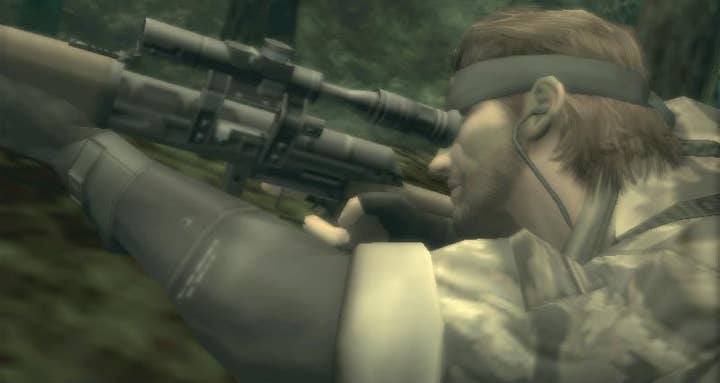
Metal Gear Solid 3: Subsistence came out as updated version of MGS3 for the PlayStation 2. Only one major difference existed between this title and the original, which was that the camera had been updated - a change that many claimed improved the game tremendously.
On average the game received higher review scores that the original and has a Metacritic rating of 87/100. Rob Fahey, who reviewed the game for Eurogamer, gave it 9/10, commenting: "If you simply want the best possible experience of one of the best games of the current generation, then this is the only option."
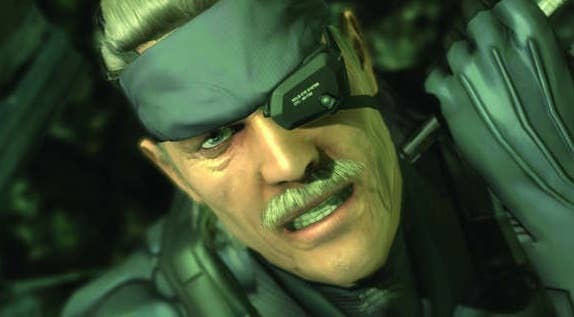
Metal Gear Solid 4: Guns of the Patriots is released today. This is the highly-anticipated climax to the Metal Gear Solid franchise bringing the series to a close at ten years old. The end was made even more poignant as it will the last outing for Solid Snake and is the last Metal Gear game Hideo Kojima will work on.
Originally intended to debut late 2007, Konami's stock actually suffered after announcing the delay to 2008. Konami shares fell by 5.9 per cent, and was the largest stock decline in nearly four years, giving some indication of the importance that the franchise has for the company.
So far reviews have been positive, with the title earning an impressive Meta Critic rating of 93/100. Eurogamer's Oli Welsh awarded the game an 8/10, commenting: "You could not ask for a funnier, cleverer, more ambitious or inspired or over-the-top conclusion to the Metal Gear Solid series, but it's definitely time to move on".